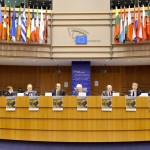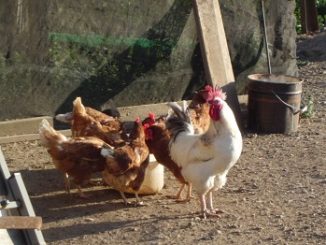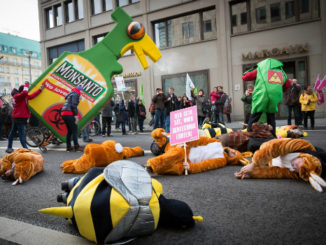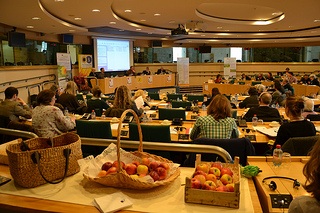
ARC update from Brussels (follows on from first update – A long way to go for a new Common Agriculture Policy)
The common line of criticism from ministers at the debate, along with an important majority of Members of Parliament, was that the reform would lead to more bureaucracy and burdens for farmers – mainly linked to the proposals of greening and any form of conditioning of direct payments. Some called it “green tape” referring to the English expression “red tape” for bureaucracy. The proposals to define 7% of farm land of all farmers as areas of to be managed with an ecological focus was equally dismissed by many speakers as a new form of setting land aside, which in times of increasing world hunger and a growing world population was said to be unacceptable. Commission Cioloş now refers to it as “ecological infrastructure” pointing at the contribution of hedges, trees and specific landscape elements to an overall more sustainable production system.
Most ministers and MEPs from new member states insisted that they would not be willing to accept continued unequal direct payments to farmers in East and West, which in some cases amount to only one quarter of payments received in other Member States. These points were very strongly raised by the Baltic States, Slovakia and Slovenia. Their key demand is a new set of indicators which reflect the real differences in costs of production, including labour force.
Virtually all ministers pleaded for more flexibility and pragmatism in applying rules for greening, direct payments and rural development, meaning that Member States should have more freedom in interpreting rules and water down sustainability criteria to allow what they call “competitive agriculture” and distributing EU money accordingly. Their argument is that this would reduce bureaucracy and controls and help to adapt the rules to national specificities and realities.
The UK for instance demands more flexibility in rural development measures in order to be more efficient in spending. Greening ambitions should be applied through the voluntary rural development measures and not keep farmers from becoming more competitive and efficient. “They should be enabled to take advantage of rising food prices”. Many farmers “would have great difficulties to find the 7% unproductive land which they could afford to set aside” was the kind of argument that was raised.
Ministers from Luxembourg and France also argued that the greening proposals were far too bureaucratic and would keep farmers from boosting production and income. Italy even argued that greening would most probably not have positive environmental effects. MEP McGuiness, proudly calling herself inventor of the term “green tape”, and the Irish farm minister suggested “sustainable intensification” as a constructive way out of the “greening” conflict. Mc Guinness said that she sees “at least 40 shades of green” which could be different ways of dealing with the challenges like climate change, biodiversity loss etc. Both insisted on more flexibility for Member States and that there was no “one size fits all solution” for the challenges.
On market regulation the classic divide persisted across political groups and national ministries. While countries including Finland, Sweden Denmark, the UK, The Netherlands and the Czech Republic pushed for further liberalisation of agricultural markets, France and the Mediterranean countries led proposals for better market management, strategic food stocks and supply management. Price volatility, fair trade rules and border protection were rarely raised as issues, whilst the perceived loss of competitiveness due to high quality and environmental standards was often referred to.
Regarding the question of how “small farmers” and “active farmers” should be defined and what kind of support they should receive, most ministers and MEPs claimed that these questions would be best defined on a national level and that this definition should not hamper “structural change”. Capping and “degressive payments” to very big farms was strongly rejected by Germany, the UK, Spain and Portugal.




